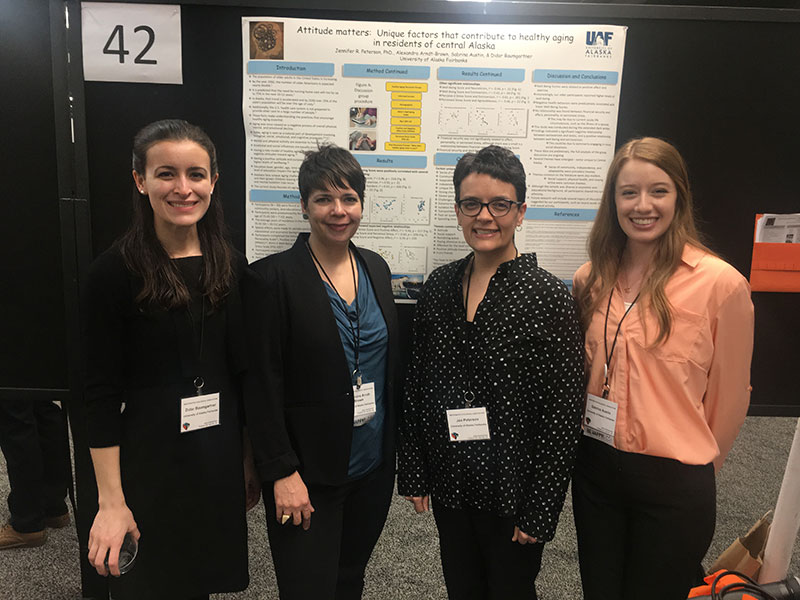Get students in the lab early
Early immersion in research is the concept of involving students in the research process at the earliest possible time. When I arrived at UAF, I was eager to help get students involved in research. Armed with only some basic research questions, I approached one of my faculty mentors with the idea of getting students involved right away.
Most guidance to new faculty members focuses on developing a program of research, securing funding and equipment, and then seeking research assistants. The early immersion approach starts with getting students involved in the research process and then focuses on aligning resources. This approach is student-focused and provides strong momentum for student involvement as well as a jump-start to the new faculty’s research programs.
In my second month as a faculty member at UAF, I sent out an announcement inviting students to come to a meeting to discuss getting involved in psychology research. Along with Dani Shepard, associate professor of psychology, I presented 10 research questions to the group of students. During the first months, we reviewed research articles and further developed our research questions. Students were immersed in the process of conceptualizing, designing, conducting and disseminating research.

Bringing students in at the beginning promoted a sense of ownership that has persisted to today. The success of this approach is evident in student URSA funding, student participation in UAF’s undergraduate research day, and attendance at the Western Psychological Association regional convention each year. There have been eight to 15 active members of the lab and several students have continued to work on projects even after graduation.
Multi-tiered mentorship has been a major focus of this lab design. I have benefited from the mentorship of other faculty members in my department, I mentor the students, and, most importantly, the students mentor each other. The more experienced students serve as peer mentors for the newer students in the lab. This decreases the overall faculty workload and increases students’ skills and general competency.
Over the past three years, we have conducted studies examining how spending time in nature affects the health and well-being of local residents. This lab design promotes a sense of pride and investment in the research process for students as well as gives them the opportunity to learn invaluable skills for future educational or career goals.


